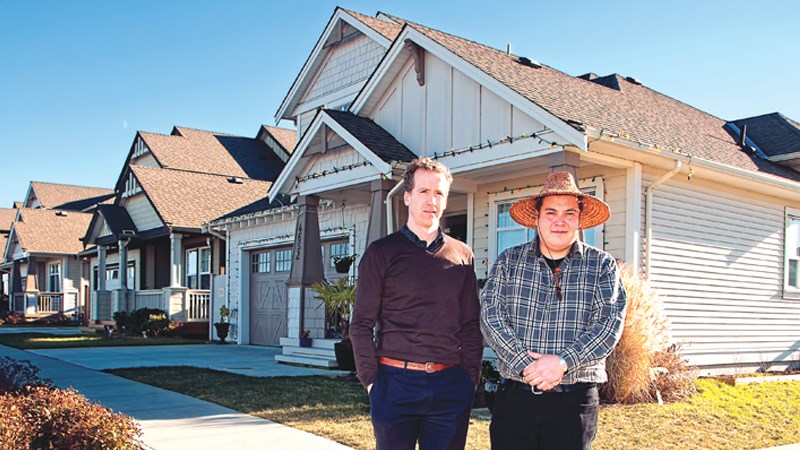Prior to announcing the foreign-buyer’s tax last August, the provincial government did not consult with Delta-based Tsawwassen First Nation (TFN) to tell them they would have an exclusive exemption of the 15 per cent tax on home sales to foreign nationals in Metro Vancouver.
However, TFN chief administrative officer Tom McCarthy, who is overseeing one of the largest residential developments in B.C., said that was the right call.
“Because they were so concerned – and rightly so – about confidentiality with respect to the foreign home buyer’s tax, they chose not to chat with us in advance,” he said.
What the provincial government did do, said McCarthy, was call them right after the legislation had been tabled in the house to explain the reasoning.
TFN land would be exempt from the tax, but given the option to “opt in” if they wanted to under the Property Transfer Tax Act. Which is not likely, McCarthy said.
In an email response to Western Investor, the Ministry of Finance outlined its decision-making process when it came to granting TFN special exempt status.
“In this case, the province chose to exclude Tsawwassen Lands from the area where the tax originally applies to allow time to talk to the Tsawwassen First Nation and evaluate the influence of foreign buyers on Tsawwassen lands,” said the statement. “To date, we have not heard concerns from the Tsawwassen First Nation about foreign purchasers in its treaty lands.”
In 2009, after 14 years of negotiations, Tsawwassen ratified the first urban First Nations Treaty in B.C. The treaty provides TFN with the right to self-governance as well as municipal, provincial and federal types of jurisdiction.
The most notable part of the deal was a vast swath of prime land, 1,789 acres (724 hectares), stretching along the coastline of the Strait of Georgia as far north as Deltaport Way and as far south as Highway 17 leading to the BC Ferries terminal.
The land is zoned under multiple jurisdictions, from mixed-use and agriculture to commercial and residential.
TFN has a number of real estate projects already completed, and a number of others in progress. These include building and selling more than 1,800 homes.
The band is developing 137 acres of residential land split into 296 condos and 194 houses plus an 18-hole golf course. It is also currently selling Tsawwassen Shores, a 270-acre master-planned community of single and multi-family homes being marketed by Aquilini Development and Construction Inc. (Townhomes start at around $600,000.)
Featured prominently on the website’s home page for Tsawwassen Shores is that the properties for sale are exempt from the foreign-buyer’s tax. McCarthy said he hasn’t seen a flood of foreign buyers since the tax was implemented, or heard of his agents dealing with an influx of calls either.
TFN’s most notable commercial development, Tsawwassen Mills mall, opened in October 2016 by Ivanhoé Cambridge, features 1.2 million-square feet of retail as well as a 1,100-seat food hall.
McCarthy doesn’t anticipate TFN asking the government to write them into the foreign-tax legislation any time in the near future.
“I’d have to say at the moment we don’t see a significant problem with foreign home ownership on Tsawwassen lands,” he said. “At the moment we’re watching it, we’re watching the impact it’s having in other municipalities and we’re monitoring sales on Tsawwassen lands.”
Leases a tougher sell
McCarthy said he thinks foreign buyers may be averse to buying on Tsawwassen lands because it is all leaseholds and not fee simple (owning the property outright).
Jean Yuen, a lawyer for the Boughton Law Corp., who specializes in Aboriginal Law and First Nations economic development, agrees, noting she thinks the typical foreign buyer may never warm to the idea of leasing property.
“My experience with prospective foreign buyers, at least those from China, is that they are looking to buy property outright,” said Yuen. “First Nations generally cannot or will not convey title to their lands. As such, buyers, including foreign buyers, are only able to purchase leaseholds but not fee-simple title to First Nations lands. Foreign buyers may be adverse to leaseholds because they appear more complicated legally, and there is a defined end date to leaseholds, even if it’s an end date that is 99 years away.”
Yuen added being exempt from the foreign-buyer’s tax may give Tsawwassen real estate developments a “leg-up” when pitted against other neighbouring developments.
Andrey Pavlov, a Simon Fraser University Beedie School of Business professor who specialized in real estate finance, said Tsawwassen should never have been exempt from the tax in the first place.
“Generally exempting anyone from a particular tax is a direct subsidy to them, so that would help them,” he said. “If we need to subsidize First Nations for any reason, we should just write them a cheque. I’m very much into helping people, but help the people directly.”
A number of high-profile deals have taken place when it comes to First Nations development.
Last year, the Department of National Defence (DND) sold its 90-acre Jericho Lands in Vancouver’s Point Grey for $480 million to the Musqueam, Squamish and Tsleil-Waututh First Nations, and is preparing to dispose of its Royal Roads property in Victoria. The DND is currently talking with the Songhees and Esquimalt First Nations about that 536-acre site.
Drew Mildon, a partner with Woodward & Co., who specializes in aboriginal rights and titles, said real estate most definitely could be the financial future for First Nations that are located in areas with high demand.
“There are great opportunities for First Nations” who are in urban or recreational real estate environments, Mildon said.



